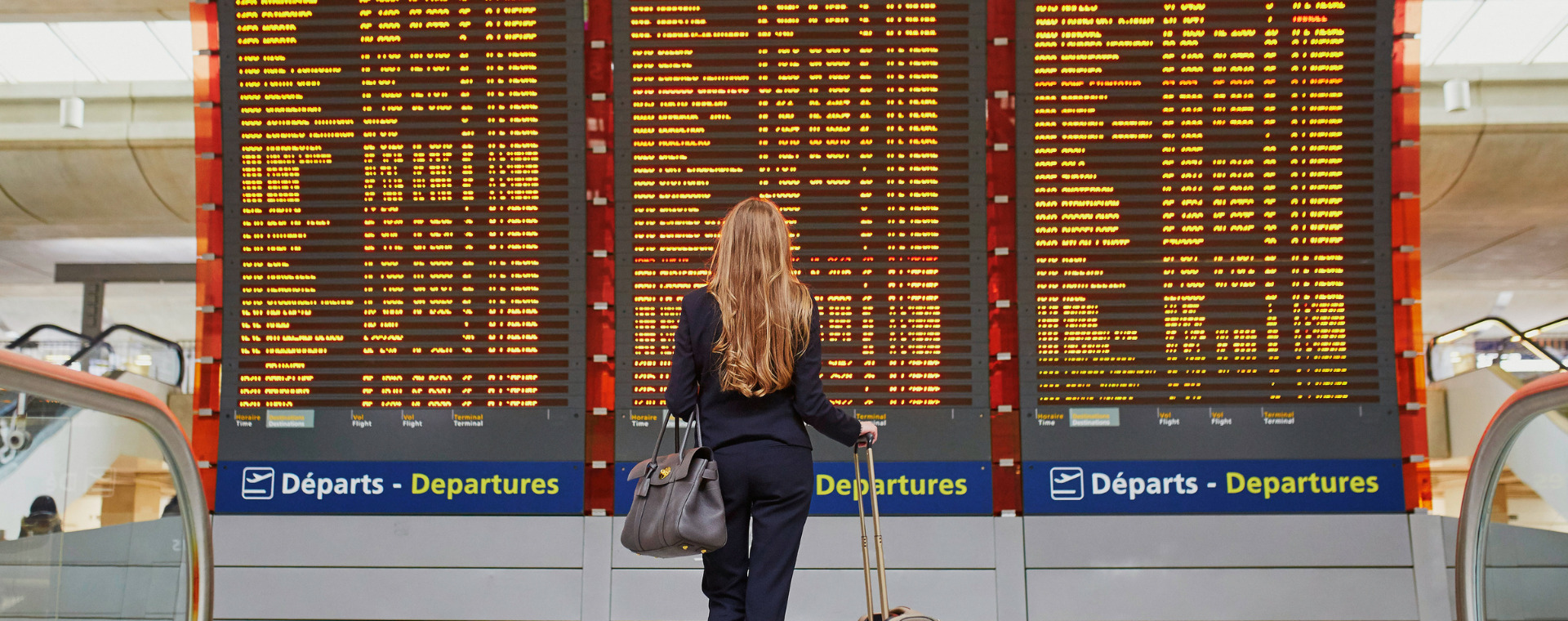
With the prominence of AI in the media at the moment (for both the good and the bad) you might be thinking this is something completely new.
However, the Travel and Transportation industry has already successfully incorporated AI technology.
From AI chatbots providing assistance with your travel bookings and personalised recommendations during your travel planning, to the use of facial recognition software at airport security.
London Heathrow airport is already deploying a pair of autonomous robots that interact with passengers. These robots will guide passengers around Terminal 5 and assist on service desks, check-in counters, bag drops and other facilities.
The purpose of this and other automation (such as bag drop machines and self-driving luggage vehicles), is to make the customer journey faster and smoother, working alongside people to provide a seamless travel experience.
Whilst AI is widely viewed as a means to reduce the workforce and the associated cost, working together with people appears to be the key to success.
The Boston Consulting Group suggests it’s not enough to only invest in scaling AI technology. You need to invest in people and processes in order to maximise the value and make true change.
As mentioned in their article “Artificial Intelligence and AI at Scale” businesses that achieve the greatest results from their investment are those that typically dedicate 30% of their investment in AI and tech and 70% into integrating AI into business processes and developing agile ways of working so the investment is heavily geared towards people rather than AI.
What consumers really think about AI
We mustn’t lose sight of the customer in the rush to all things AI. In the Savanta Consumer Omnibus of 2283 consumers, almost two-fifths (37%) of consumers disagreed that they would be happy for purely automated facilities to undertake security needs at the airport but were much happier for automation to handle the process of check-in and baggage drops (48% and 46% respectively).
While 45% of consumers agreed that they would be happy to use an AI assistant/chatbot to find the best deal for their holiday and 40% to source and book flights, there is still a lot of indecision about this, with a quarter of consumers sitting on the fence.
A third of consumers (32%) disagreed that they would be happy for an AI assistant/chatbot to source/ book tailored trips during their holiday planning.
There are clearly significant differences in attitudes towards the use of AI and automation by consumer age, with 46% of those under 35 in agreement that they are happy to use an AI assistant/chatbot to make suggestions for a suitable travel destination, compared to a quarter of those aged 55 plus (24%).
When it comes to public transport needs (rail, bus, tube), six in ten consumers agreed they were happy to use purely automated facilities to access journey information (57%) and obtain information about fares and ticketing (56%), and over half (54%) were happy to purchase tickets using purely automated facilities. When it comes to customer service enquiries however (for example, seeking assistance, requesting refunds etc), a third (33%) disagreed that they would be happy for this to be automated, increasing to 47% for the over 55’s.
Is AI always the better choice?
Customers also need rewiring in their decision-making to adopt AI at scale. Let’s face it historically replacing humans with automation hasn’t always been perceived as providing an improvement in customer service.
Speaking from personal experience, I have on numerous occasions found it infuriating when dealing with automated telephone systems that don’t quite answer your very specific query or need, and you end up in an endless automated loop.
Businesses have some way to go to prove to customers that automation and AI will be able to offer improved service through:
- tailored, personalised experiences
- efficient process
- reduced costs of products and services
- an optimised quality of customer service
So, what are the current perceived benefits to using AI or automation to facilitate customers transport requirements and convince them to return?
The benefits are mainly seen in availability, speed and accuracy of service, but not necessarily in the delivery of improved customer service or personalisation. And three in ten (28%) need to be convinced that there are any benefits at all.
How can Savanta help?
Savanta offers research expertise to support businesses in making sure that their AI and automated offerings are meeting the needs and wants of customers and having the transformational impact on the customer experience that they desire. Our behaviour change model can also map where customers are in their adoption of new technologies and what the drivers and barriers to use are and interventions needed to progress them on their journey to adoption.
If you are a forward looking brand investing in AI powered technologies and want to find out how Savanta can support you on your journey please contact: [email protected].
If you’d like to talk to us about our Consumer Omnibus or our work in the Transport and Services or Customer Experience space, please get in touch.
Research for the aviation sector
The environment in which airports operate has changed markedly in recent years, with COVID-19 presenting an enormous crisis for the aviation industry. As recovery continues, aviation organisations are looking ahead to their long-term strategy, and airports in particular face a diverse and challenging range of issues.
To find out what this means for the future of the sector, download our full report here.





